The 2023 Margaret Flockton Award winners
Newly discovered species and intricate digital renderings are among the 20th annual botanical scientific illustration award winners.
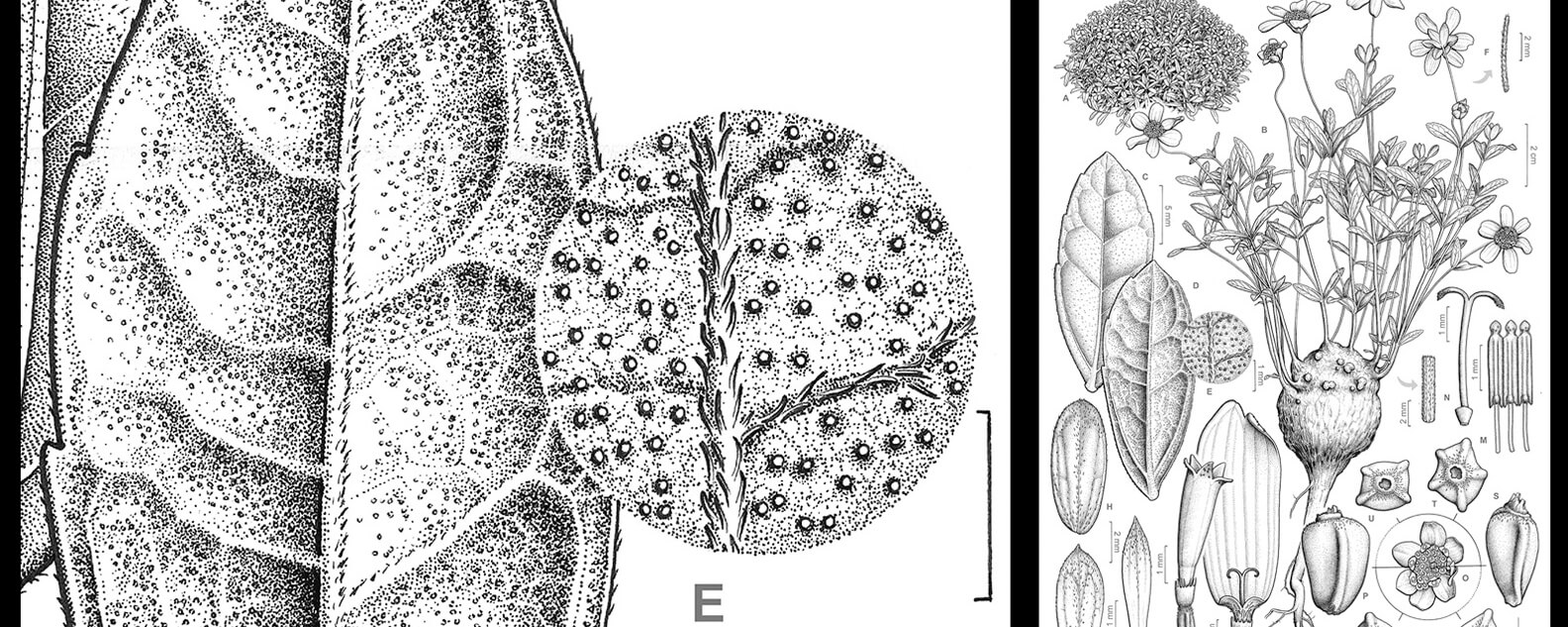
The Margaret Flockton Award launched its first in-person exhibition in two years at the Australian Botanic Garden Mount Annan on Sunday 20 August during National Science Week.
Showcasing an array of botanical artworks from around the world, including countries like Qatar and Vietnam, the international award celebrates the best contemporary work in scientific illustration.

Image above, and top: The first-prize winning entry, a member of the daisy family by Gustavo Surlo
First prize
Brazillian artist Gustavo Surlo, took home first prize for his depiction of the newly found Wedelia species – a member of the daisy family.
The Margaret Flockton Award is judged and hosted by the Botanic Gardens of Sydney’s botanical illustrators Catherine Wardrop and Lesley Elkan.
“Gustavo’s pieces show the Wedelia sp. nov. species with strength while capturing the delicate surface of the plant’s textures,” says Lesley Elkan.
“He has skilfully composed the illustration. The subtle use of lines and bars gives a sense of scale."
We can understand the plant’s role in its habitat and see its minute hairs and glands on the leaf surface.
Second prize
Second prize is awarded to Spanish artist, Juan Luis Castillo, for his illustration depicting Phoenix canariensis, the Canary Island date palm. Castilo was praised for his detailed depiction of the intricate species:
“Juan's digital illustration captures the complex structure of the Phoenix palm delicately,” says Catherine Wardrop.
“The large frond, embellished with linear tone, is full of movement and life. We could not fault the composition, with its balanced arrangement to emphasise the strong shapes which directs the eye around the piece."
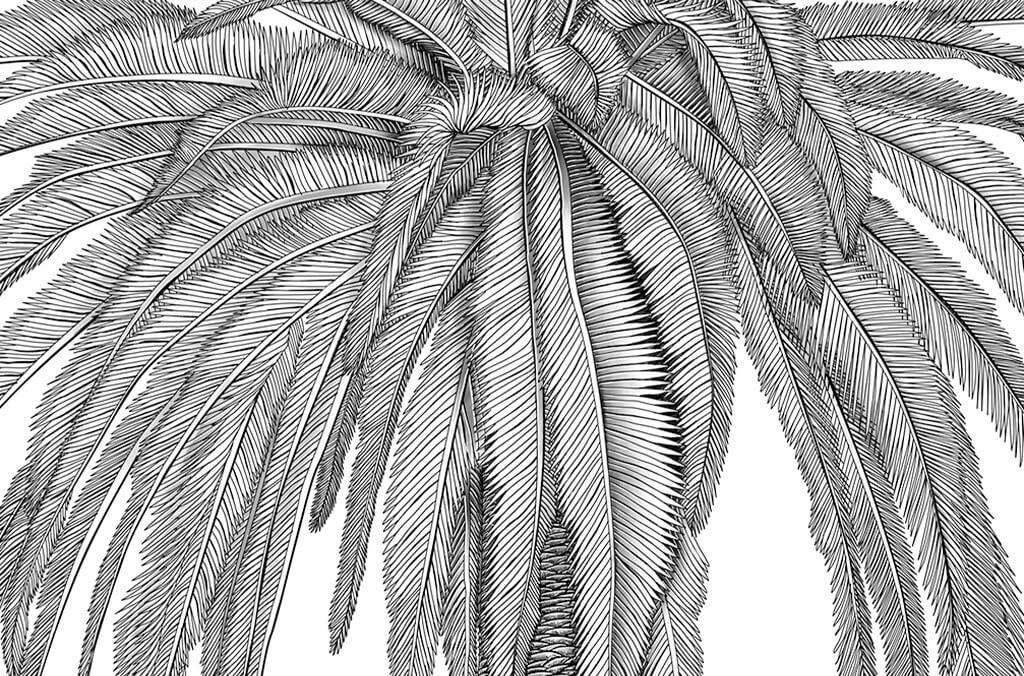
Second prize went to Juan Luis Castillo’s Canary Island date palm. High commended was awarded to François Sockhom Mey’s MacFarlane pitcher plant and Laura Ribulgo’s peach variety. 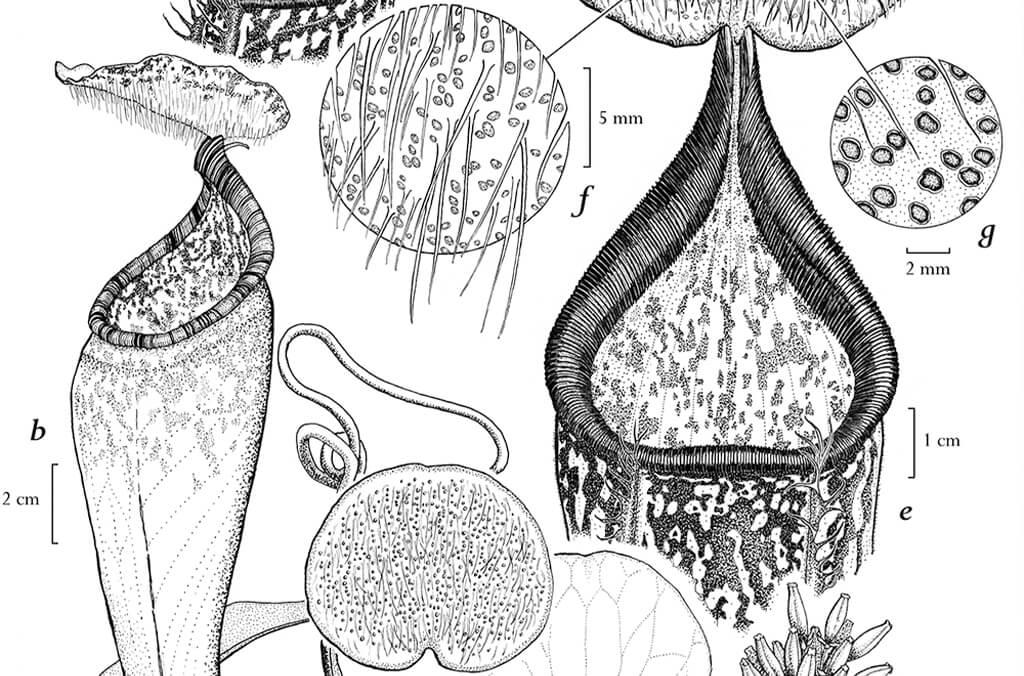
© François Sockhom Mey 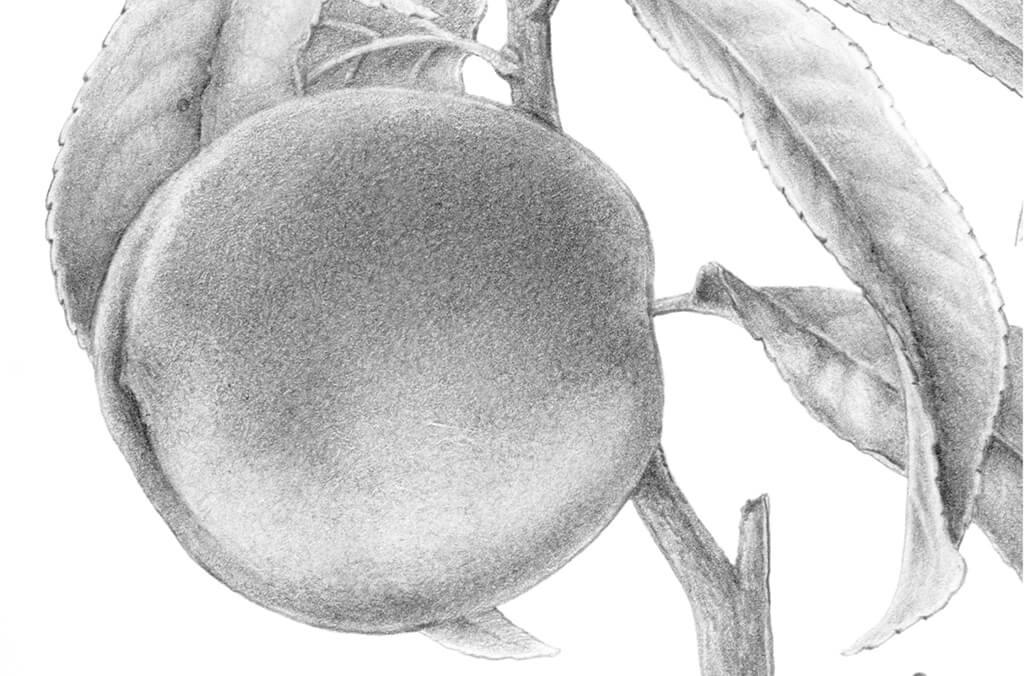
© Laura Ribulgo
Highly commended
Other works receiving highly commended this year include François Sockhom Mey’s ink-drawing of Nepenthes macfarlanei, a carnivorous pitcher plant, and Laura Ribulgo’s pencil drawings of a peach variety, Prunus persica var. persica.
“The quality of this Award steps up every year,” says Wardrop.
“We are so impressed with the emerging and traditional mediums being used and the variety of species depicted.”
The 37 artists featured in this year’s exhibition at the Australian Botanic Garden Mount Annan until Friday 20 October 2023. They will also have their work displayed online on Flickr.
“Hosting the gallery online has been a wonderful addition to the exhibition for the many international participants and viewers,” says Elkan.
“We’re excited that our local community can see them up close in-person for the first time in two years, while we continue sharing them online with our global community.”
Full winners list
First prize
Wedelia sp. nov. (daisy), Gustavo Surlo
Second prize
Phoenix canariensis (Canary Island date palm), Juan Luis Castillo
Highly commended list
Nepenthes macfarlanei (MacFarlane pitcher plant), François Sockhom Mey
Prunus persica var. persica (peach), Laura Ribulgo
About the exhibition
The 20th Margaret Flockton Award celebrates an array of scientific botanical illustrations, created by 36 artists from 18 countries. A total of 53 entries were judged and 28 finalists will be exhibited on-site at the Australian Botanic Garden Mount Annan until Friday 20 October 2023. You can also view the full exhibition on Flickr.
The Margaret Flockton Award Committee would like to advise that Natanael Nascimento dos Santos has withdrawn the entry Centrosema sericiflorum from this year’s Award.
Related stories
Working with stakeholders from different Australian states, geneticists have helped to clarify taxonomy and conservation planning for seven leafless Bossiaea species.

Bunga Bangkai (Indonesian), Titan Arum or Amorphophallus titanum has the biggest, smelliest flower-spike in the world. It flowers for just 24 hours, once every few years… and in January 2025 one bloomed at the Royal Botanic Garden Sydney. Named Putricia by staff at the Botanic Gardens of Sydney, she quickly captivated people from all over the world, writes John Siemon, Director of Horticulture and Living Collections.
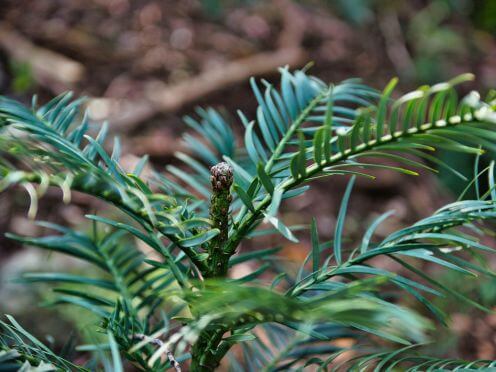
The legendary Wollemi Pine (Wollemia nobilis) has captivated the world since its discovery in the Blue Mountains in 1994. Three decades later, its survival story isn't over yet with the critically endangered conifer still at risk of extinction.